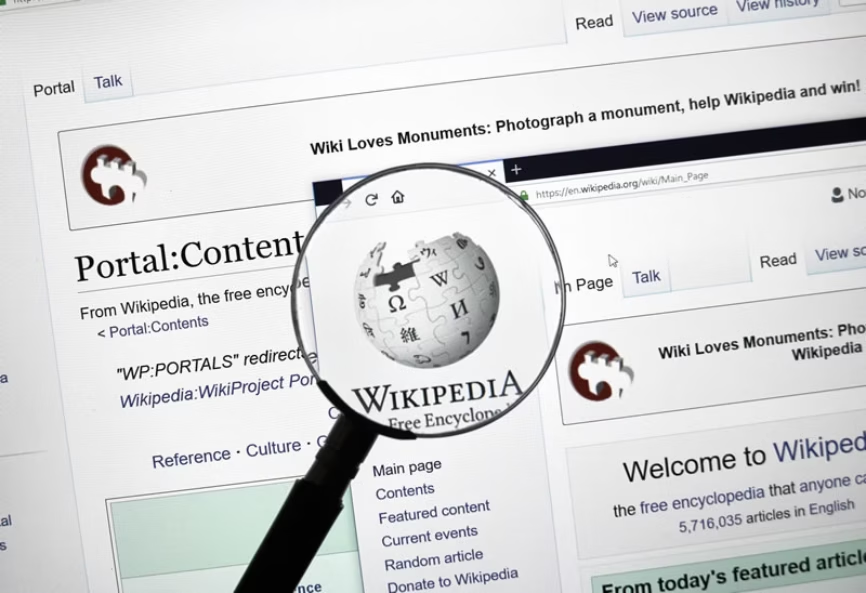Having a Wikipedia page for your organization, brand, or even yourself is a coveted goal for many. It’s a symbol of credibility, a powerful SEO tool, and a way to establish a permanent record of your achievements. However, creating a successful Wikipedia page is not as straightforward as publishing information online. Wikipedia has strict guidelines designed to maintain neutrality, credibility, and reliability.
Here’s a comprehensive guide to help your organization or brand navigate the process of establishing a Wikipedia presence.
Understanding Wikipedia’s Guidelines
Wikipedia articles must meet several key criteria, which are often the primary reasons submissions fail:
- Notability
Wikipedia requires that subjects have received significant coverage from independent and reliable sources. Notability is judged based on:- Coverage in major media outlets, journals, or books.
- Recognition through awards, significant milestones, or impactful contributions.
- Influence in a particular industry or field.
- Neutrality
Articles must avoid promotional language and present information objectively. Statements like “leading brand” or “innovative solutions provider” are considered biased unless backed by reputable sources. - Verifiability
Every claim made in a Wikipedia article must be backed by reliable, third-party sources that are readily accessible. Self-published content, such as blogs or social media posts, is not considered reliable. - Conflict of Interest (COI)
Wikipedia discourages individuals or organizations from writing or heavily editing articles about themselves due to potential bias.
Steps to Create a Successful Wikipedia Page
1. Establish Notability Beforehand
If your organization or brand hasn’t received sufficient independent coverage, focus on building your presence before attempting a Wikipedia page. This can include:
- Being featured in reputable news outlets, trade journals, or academic papers.
- Winning prestigious awards or being recognized by industry bodies.
- Launching notable projects or initiatives that gain public interest.
2. Collect Reliable, Independent Sources
Gather all the materials you’ll need to create your Wikipedia page. Examples of reliable sources include:
- Articles from well-known media outlets (e.g., The New York Times, Forbes).
- Books or research papers discussing your organization.
- Third-party reviews or analysis of your work.
- Industry awards and recognitions.
Avoid using:
- Press releases.
- Self-published content (e.g., blogs, company websites).
- Paid articles or advertorials.
3. Write in a Neutral, Encyclopedic Tone
Avoid language that could be considered promotional. A Wikipedia article should read like an unbiased summary of facts. For example:
- Promotional: “XYZ is the most innovative company in the world, revolutionizing its industry.”
- Neutral: “XYZ is a company specializing in [industry focus], noted for its contributions to [specific achievements], according to [source].”
4. Structure Your Article Correctly
A well-structured article increases your chances of approval. Follow this common format:
- Introduction: A concise summary of the organization, including its founding, purpose, and main achievements.
- History: Details about the organization’s origin, key milestones, and evolution.
- Notable Achievements: Highlight major contributions, awards, or projects, citing sources.
- Impact and Recognition: Include third-party assessments or mentions in media.
- References: Use footnotes to link to reliable sources.
5. Use Wikipedia’s Draft Feature
Wikipedia allows contributors to use a “sandbox” or draft mode to develop articles. This lets you refine your content and seek community feedback before publishing. Engage with experienced Wikipedia editors to review your draft.
6. Submit via a Neutral Third Party
If you have a conflict of interest, such as being part of the organization you’re writing about, it’s best to involve an experienced, independent editor. This helps ensure neutrality and reduces the risk of rejection.
Common Challenges and How to Overcome Them
Rejection Due to Lack of Notability
- Solution: Reevaluate the sources used. Add more independent coverage and reframe your draft to highlight achievements objectively.
Deletion for Promotional Content
- Solution: Rewrite the article to remove subjective or biased language. Focus solely on facts supported by reliable sources.
Difficulty Gathering Reliable Sources
- Solution: Invest in building a stronger public presence before attempting a Wikipedia page. Engage in PR activities that result in independent media coverage.
Tips for Long-Term Success
- Monitor and Maintain the Page: Wikipedia articles are open to public editing. Ensure factual accuracy by monitoring your page, but avoid frequent edits that may signal a conflict of interest.
- Encourage Independent Coverage: Encourage journalists, researchers, and thought leaders to write about your organization without direct influence.
- Engage with the Wikipedia Community: Contribute to other topics on Wikipedia to build a positive reputation within the editor community.
When to Seek Professional Help
If navigating Wikipedia’s guidelines feels daunting, consider hiring a consultant or professional Wikipedia editor with experience in creating articles. They can guide you through the process while ensuring compliance with Wikipedia’s policies.
A Note About SEO
Wikipedia backlinks are nofollow. This means they do not directly pass SEO link equity (often called “link juice”) to the linked website. Wikipedia implemented the nofollow attribute for all external links to prevent spam and discourage link manipulation for SEO purposes.
Although they are nofollow, Wikipedia links can still provide indirect benefits such as:
- Traffic: High-quality content on Wikipedia often ranks well, so a link there can drive referral traffic.
- Credibility: Being linked from a trusted source like Wikipedia can enhance your website’s authority in the eyes of users.
- Indexing: Search engines may crawl and index your linked page faster if it’s cited on Wikipedia.
If you’re building links for SEO purposes, it’s important to have a balanced approach that includes both dofollow and nofollow links.
Final Thoughts
Creating a Wikipedia page requires patience, careful preparation, and adherence to Wikipedia’s strict guidelines. By focusing on notability, verifiability, and neutrality, and by using reliable sources, your organization or brand can establish a credible and lasting presence on one of the internet’s most trusted platforms.

